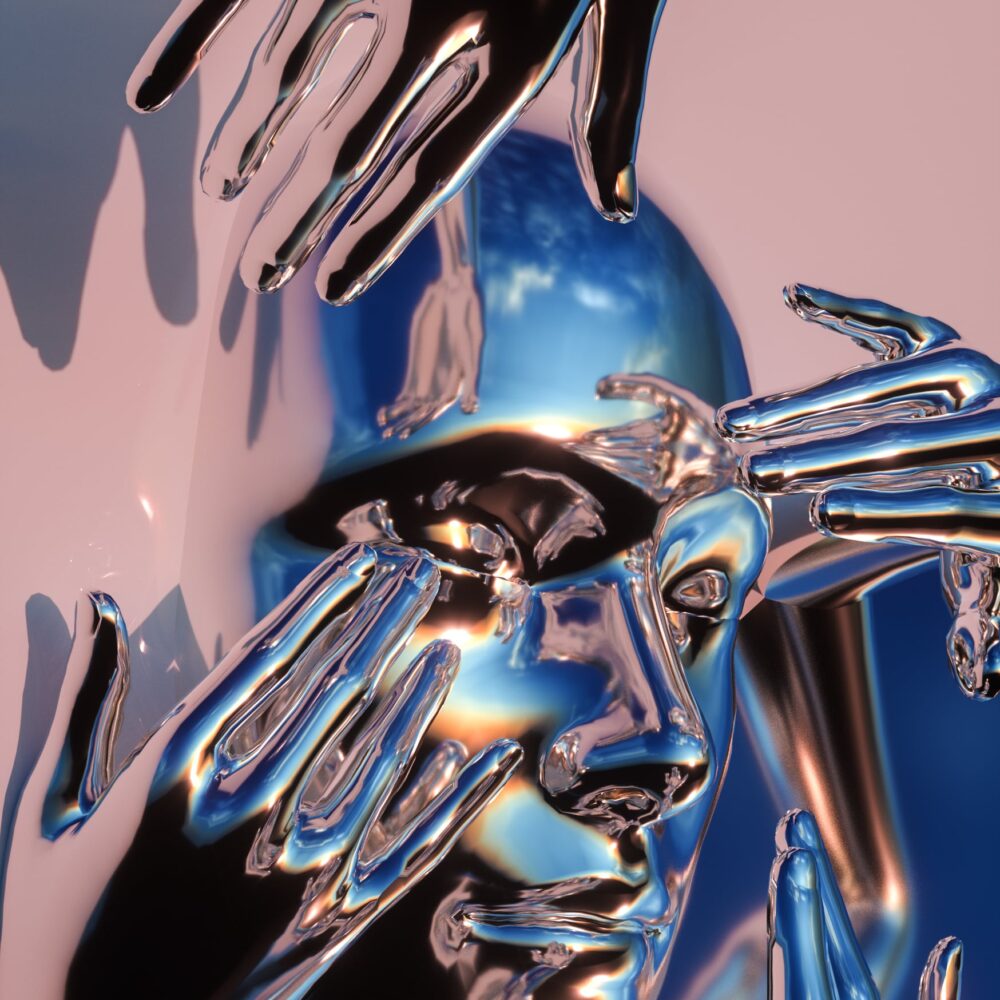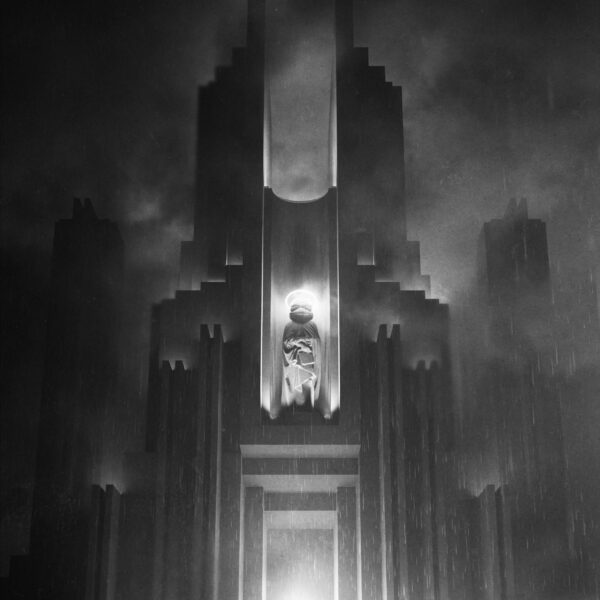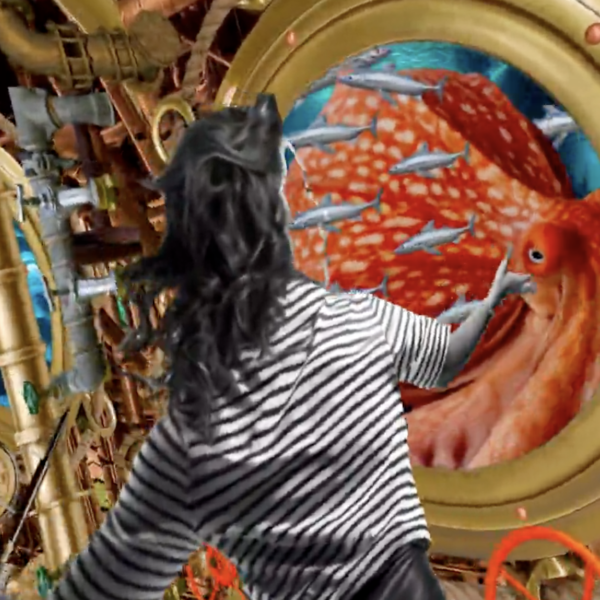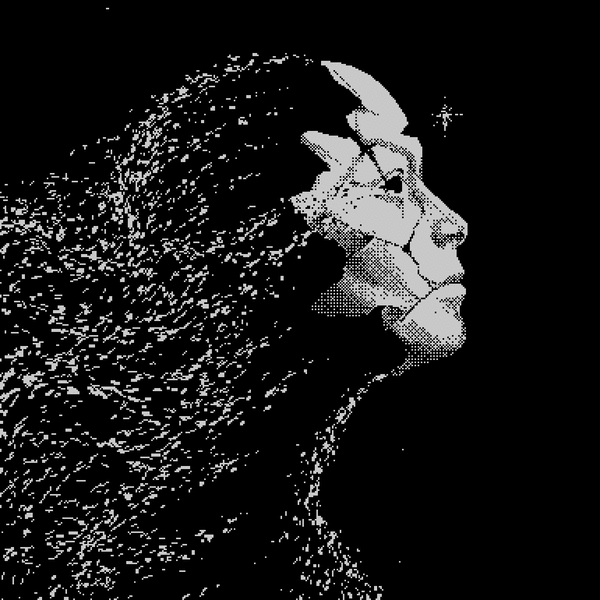Mastering the Mind: FVCKRENDER on Creativity, Anxiety, and Finding Balance
Frederic Duquette, also known as FVCKRENDER, is a prolific creator who has taken the digital art world by storm. Based in Vancouver, FVCKRENDER is a self-taught master of flawless, flowing digital pieces that combine nature, light, and technology in massively innovative ways. In this interview, we speak candidly about FVCKRENDER’s creative process, how he manages his mental health, his previous life in restaurant work, and the evolution of his style. Please note, this conversation has been edited for brevity and clarity.

Q: Can you tell me about your beginnings as an artist?
FVCKRENDER: It all started when I was around 15 years old. I always wanted to do something artistic, but I never knew what it would be. I was very bad at drawing, so I started to create clothing. I was making these weird pieces for my friends where I would sew different types of clothing together. At 17, I had a friend who worked on Ironman as a 3D generalist, and I became really interested in digital art. I tried my hand at it for two weeks, and I gave up the whole thing because it was way too complicated for me. After that, I started to work in restaurants and I forgot my artist side, basically. Thankfully, I picked it up again at 24 years old. At 24, I started to learn 3D art programs again. I had this bike injury where I couldn’t do anything physical anymore, so this new artform was a way for me to occupy my brain.
Q: How did you transition into a professional career as a full time artist?
FVCKRENDER: It took some time. I was working 40-50 hours a week in a restaurant, and in the meantime, I was making art. I would literally go to the bar, right next to the restaurant I was working in, and I would close the bar by working on my computer– like learning how to use the software and everything. It was actually a pretty fun time. I was always the only one with a computer at the bar, and people were thinking I was either playing StarCraft or that I was the DJ. I was literally just doing art. It took a couple of years before I started to do that full-time. At a point, I truly just took a leap of faith. I was very tired of working in the restaurant. Making the decision to switch to freelance art was probably the best decision I’ve ever made.
Q: What was your first big freelance break?
FVCKRENDER: At the beginning, I was maybe making $200, $500 a month on my art, right? I think my first big gig was with Tokimonsta. I remember I was super drunk on Twitter, and I tweeted, “Let me do your visuals,” and then I started to work with her. I traveled a lot with her. I created a bunch of album covers, music videos, and visuals for shows. Now, she’s one of my best friends, which is fun. I used to be such a big fan of hers. It wasn’t that much of a big paycheck, to be honest, but it was so much fun. With that gig, I was able to create more stuff on the side. I was doing commercials for Dior. I was doing visuals for Major Lazer, visuals for all the biggest names pretty much, and big brands. Once I started to work with these brands, I grew a pretty strong social presence on Instagram. I think after one year, I had already 40,000 followers on Instagram, which in that time, was fucking mental.
Q: Your style in the NFT world is quite distinctive. Has this always been your style, or what was the evolution creatively and stylistically?
FVCKRENDER: I think I found my style pretty early on, I think in early 2016. But yes, I’ve always been using chains and crystals and scorpions and stuff like this. Really, working with light has always been my thing. Even if I was doing commercial work, for me, I was very strict about doing commercial work that looked distinctively like it’s FVCKRENDER, right? Compared to other artists, where they would follow creative direction and leads, I always try to stay far from giving my soul to someone else. I’ve always been interested in doing my own shit.
Q: Describe your style for someone who hasn’t seen it before.
FVCKRENDER: Oh, that’s really hard. I don’t like to necessarily describe it, but if I were to try to nail it down, it’s all about all light works and all light balances on objects. That’s pretty much where my head is at when I start to do a piece. I’m very interested in how light bounces off of objects. In real life, you’ll see me walk and really analyze lighting on surfaces. That’s something that I’ve been really intrigued by, since very early in my career. I have a kind of spiritual self-help type of aesthetic, I think.
Once I got involved, I realized that this space is incredible. I can literally do art, and if people like it, they'll buy it, which, to me, was a fucking crazy concept!
Q: How’d you end up in NFTs?
FVCKRENDER: I was seeing other artists post about it on Instagram. I started learning about it and was like, oh, shit, that could be a great thing for me to do, because I’m bad at doing commercial work. I’m very bad at taking directions or executing stuff. The main reason why I started to do art was to feel better and to occupy my mind and just feel better in general. I never really wanted to work in NFTs. I just started to make more money that way, so I was like, oh, I can make more money doing art than working in the restaurant. So that’s a smarter decision for me and my fiancé, right?
Q: How was your transition into the space?
FVCKRENDER: Once I got involved, I realized that this space is incredible. I can literally do art, and if people like it, they’ll buy it, which, to me, was a fucking crazy concept! I put my first piece up, and it sold for 15 ETH or 12 ETH, I don’t remember, which was one of the big sales at that time. I was freaking out. My second sale was 25 ETH, and I was literally crying and losing my mind.
Q: How do you maintain your sanity, your creative expression, and your inspiration?
FVCKRENDER: I don’t think I maintain my sanity, unfortunately. I really try hard, but it’s something that is so hard to do. I’m way better than I used to be at it, that’s for sure. The reality is I work too much. For me, not working is if I only work for 60 hours a week. Growing up, I had a pretty fucked up childhood in some ways. I lost my mom when I was 10, and I was raised by an amazing father, but he was not really present. I was going to school pretty much alone. At night, I was all alone all the time. I grew up with a lot of, I think, childhood trauma in some ways. It’s funny, because I dealt with panic attacks. I remember I was 15 years old and I literally wanted to kill myself because I was having 10 panic attacks a day. It was totally crazy and unbearable. I had them constantly until 22 years old.
Q: What sort of changes did you make at 22?
FVCKRENDER: I started to understand what anxiety was. Even after that, I had some pretty dark moments. I remember growing up, I was like, if I ever get better and get out of this fucking shit thing, I want to help people to get better as well. It was a fucking nightmare. Every day, I was like, do I end this? Like literally. I’m very glad I didn’t do anything. I really don’t mind talking about it, because I know that even though I’ve dealt with that shit, a lot of people are dealing with that shit right now. Sometimes, when you don’t see the light, it’s important to know that someone went through something similar and got out of it. I really worked hard on myself to feel better, just get better mentally. That has always been something I was very interested in as well– like how you can you rewire your brain to do stuff. I have always been interested in how to use your brain to succeed and just feel better.
I started to understand what anxiety was. Even after that, I had some pretty dark moments. I remember growing up, I was like, if I ever get better and get out of this fucking shit thing, I want to help people to get better as well.
Q: Do you have a wellness routine that you have built over the years, or how do you best cope with burnout and depression?
FVCKRENDER: Well, I’m 31, right? So, I’ve had to deal with several burnouts, several battles with moments of depression, and everything. One thing that I learned that is the most important is that the way you’re feeling is the way you react to events. Managing that is something that’s easier said than done. During my most successful moment in the art space, while I was making the craziest sell, I was very sad. I would say my go-to is really every time you feel a certain way– if you feel anxious or depressed or anything like that, step back for one week and try to figure out what makes you anxious. It takes some time to understand what makes you anxious.
Q: What are some other tips you have or methods that have worked for you in moments of anxiety?
FVCKRENDER: There’s so many things that you can do. It is going to sound super fucking cliche, but eating well and working out is the best fucking prescription out there. I realized I was at my lowest mentally when I was at my lowest physically. I’m pretty confident about that. Every time I felt super bad, I think it really helped me to just go out and breathe fresh air. But yeah, I think it differs for every person. I have several different types of toolkits. If I have a panic attack right now, I have my own toolkit to feel better in 20 seconds. If I feel depressed, that’s a longer toolkit, but you have to figure out what works best for you.


